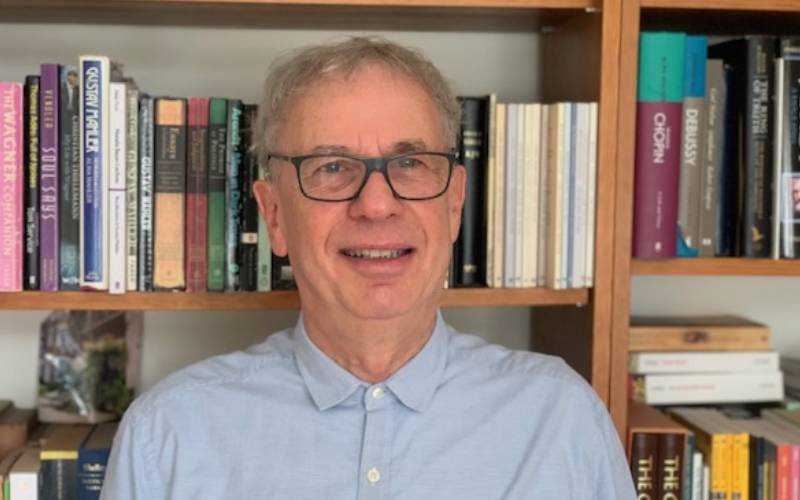“ There is a musicality at the core of our affective life. It really goes back to early mother-infant communications or what’s called ‘communicative musicality’ – the to-and-fro of the dynamic between mother and baby as really the core, the scaffolding of our emotional life. ”

Roger Kennedy, MD
London
Episode Description:
Dr. Harvey Schwartz welcomes Dr. Roger Kennedy to today’s episode. Dr. Kennedy is a training and supervising analyst and past President of the British Psychoanalytical Society. He is also a child and adolescent psychiatrist and is now the Medical Director of the Child and Family Practice in London, which is a private multidisciplinary clinic where he and his staff work with children, families, and parents, specializing in children with complex needs.
Dr. Kennedy has written 14 books and today the focus is on his latest, which is called The Power of Music: Psychoanalytic Explorations. Dr. Kennedy’s breadth of interests is remarkable. He has written on psychoanalysis and history, on tolerating strangers in intolerant times, short stories based on his work with analysands, and he has also written on psychotherapists as expert witnesses in working with people with a history of childhood abuse.
In today’s conversation, Dr. Kennedy elaborates the similarities and differences in listening to music and listening to analytic material. He provides a clinical example where he enabled a patient to hear the way she sounded which became a vital part of her growing self-awareness and with that, she accessed the freedom to sound different and to tune in to more authentic aspects of herself.
Key Takeaways:
[8:34] Dr. Kennedy explains how the musical and the psychoanalytic world inform each other.
[10:45] Is listening to music a narcissistic experience for the listener?
[12:57] Dr. Kennedy dives deep into the meaning of the listening experience.
[14:45] When you hear what the patient has to say, you can hear the rhythms, and what lays between the lines.
[16:37] Sounds bring people together.
[18:14] Dr. Kennedy shares the reason why he often closes his eyes while listening to patients.
[18:52] Dr. Kennedy’s listening style has changed over the years.
[20:01] Dr. Kennedy describes the art of improvisation.
[21:22] Dr. Kennedy shares a clinical example.
[26:09] Dr. Kennedy talks about how he developed a passion for music.
[31:36] The unique experience of treating musicians.
[33:45] The delicate balance between destructiveness and creativeness.
[34:55] Dr. Schwartz shares a paragraph from Dr. Kennedy’s writings.
Mentioned in This Episode
IPA Off the Couch – www.ipaoffthecouch.org
Recommended Readings
Graf, M. (1947), From Beethoven to Shostakovich: The Psychology of the Composing Process New York: Greenwood, 1969.
Kennedy, R. (2014), The Psychic Home: Psychoanalysis, Consciousness and the Human Soul London and New York: Routledge.
Lombardi, R. (2008), Time, Music, and Reverie. Journal of the American Psychoanalytic Association 56:1191-1211.
Nagel, J. (2013), Melodies of the Mind: Connections Between Psychoanalysis and Music London and New York: Routledge.
Wigglesworth, M. (2018), The Silent Musician: Why Conducting Matters London: Faber and Faber.
